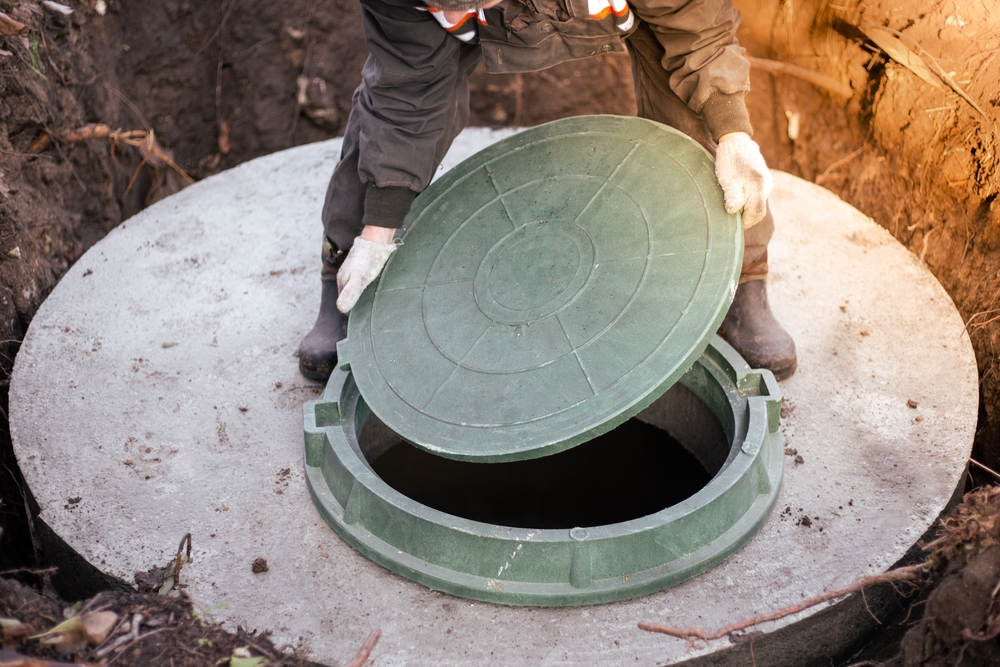When Would I Need To Update My Septic System?

Maintaining a functional septic system is essential for the proper disposal of wastewater in homes that are not connected to municipal sewage systems. Over time, septic systems may require updates or replacements to ensure they continue to operate efficiently and prevent potential health and environmental hazards. In this blog, we’ll explore the factors that indicate when you may need to update your septic system and the importance of timely maintenance.
Understanding Your Septic System
How Septic Systems Work
Before delving into when to update your septic system, it’s essential to understand how these systems function. A typical septic system consists of a septic tank and a drain field. Wastewater from your home flows into the septic tank, where solids settle to the bottom and bacteria break down organic matter. The liquid effluent then flows out into the drain field, where it is further treated and absorbed into the soil.
Signs of a Failing Septic System
Several signs indicate that your septic system may be failing and in need of attention. These include:
- Foul Odors: Persistent foul odors emanating from your yard or drains could indicate a problem with your septic system.
- Slow Drains: If your sinks, toilets, or showers are draining slowly, it could be a sign of a clog or backup in your septic system.
- Pooling Water: Puddles of water or lush green patches in your yard, especially around the drain field area, may indicate a septic system failure.
- Sewage Backup: The most obvious sign of a failing septic system is sewage backing up into your home, which requires immediate attention.
When to Update Your Septic System
Age of the System
Septic systems have a lifespan, typically ranging from 15 to 40 years depending on various factors such as usage, maintenance, and soil conditions. If your septic system is approaching the end of its expected lifespan, it may be time to consider upgrading your septic tank or replacing the entire system.
Increase in Household Size
An increase in household size often leads to a higher volume of wastewater generated, which can overload an older or undersized septic system. If you’ve added bedrooms or occupants to your home since the installation of your septic system, it may be necessary to upgrade to a larger tank or expand the drain field to accommodate the increased demand.
Changes in Water Usage Patterns
Changes in water usage patterns, such as installing high-efficiency appliances or fixtures, can affect the performance of your septic system. While these changes may result in reduced water consumption, they can also alter the balance of solids and liquids in the septic tank. Upgrading your septic system to account for these changes can help maintain its effectiveness.
Environmental Regulations
Environmental regulations and zoning ordinances may require homeowners to upgrade their septic systems to comply with current standards. If your septic system is outdated or not in compliance with local regulations, you may be required to replace or upgrade the system to avoid fines or penalties.
Benefits of Upgrading Your Septic System
Improved Performance
Upgrading your septic system can improve its overall performance, ensuring more efficient treatment and disposal of wastewater. This can reduce the risk of backups, odors, and environmental contamination, providing peace of mind for homeowners.
Increased Property Value
A well-maintained and up-to-date septic system can enhance the value of your property. Prospective buyers are more likely to be attracted to homes with modern, functioning septic systems, making it a worthwhile investment for homeowners planning to sell their property in the future.
Environmental Protection
By upgrading your septic system, you’re not only protecting your property but also the environment. Properly functioning septic systems prevent pollutants from contaminating groundwater and surface water sources, preserving water quality and ecosystems.
Conclusion
Maintaining a functional septic system is crucial for the health and well-being of your household and the environment. Knowing when to update your septic system is essential for preventing potential issues and ensuring continued performance. Whether it’s due to age, increased household size, changes in water usage, or regulatory requirements, upgrading your septic tank or replacing the entire system can provide numerous benefits, including improved performance, increased property value, and environmental protection.
If you notice any signs of a failing septic system or if your system is approaching the end of its expected lifespan, it’s essential to consult with a qualified septic professional to assess your options. By investing in the maintenance and upgrade of your septic system, you can ensure a clean and healthy environment for your family and future generations.
Need Septic Tank Services in Prior Lake, MN?
Since 1956, Mike’s Septic & McKinley Sewer Services has been providing the local area with an invaluable service. We are a family-owned and -operated company that takes pride in the work that we do and the relationships we build with our customers. We strive for perfection with each job we take and make sure our customers are always happy. At Mike’s Septic & McKinley Sewer Services, we specialize in everything septic. We handle anything from tank and system design to the actual installation. We do septic system and tank repairs, cleaning, pumping, and routine maintenance. We also do tank and system compliance inspections and certification. Contact us today to learn more about what we can do for you!
